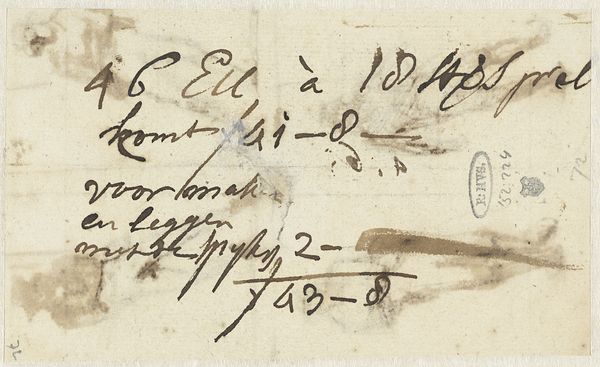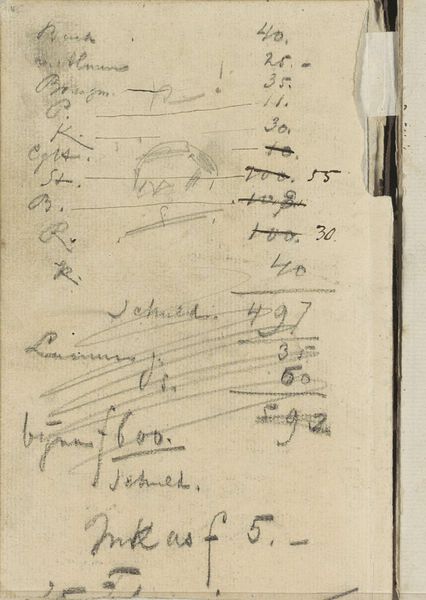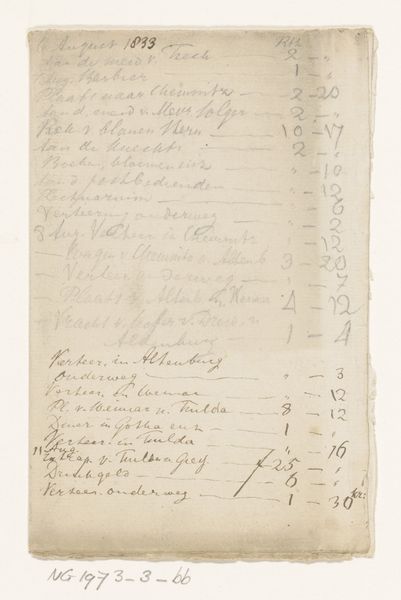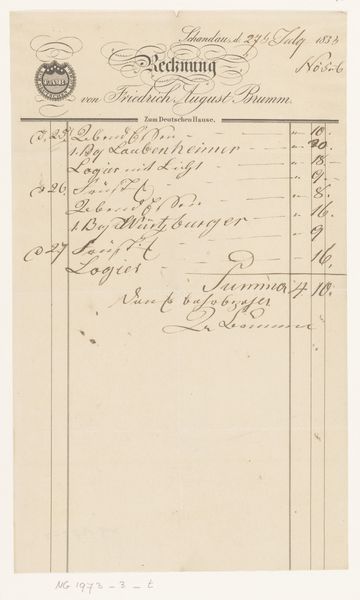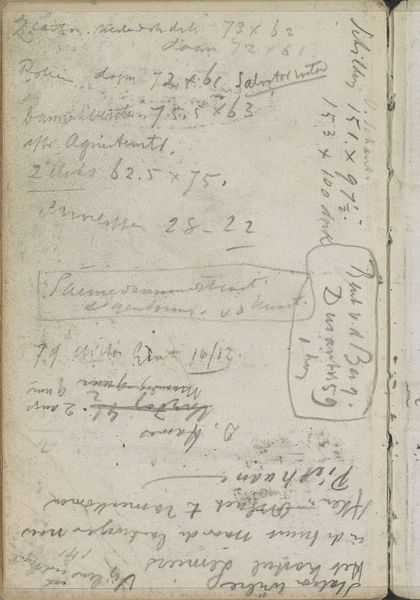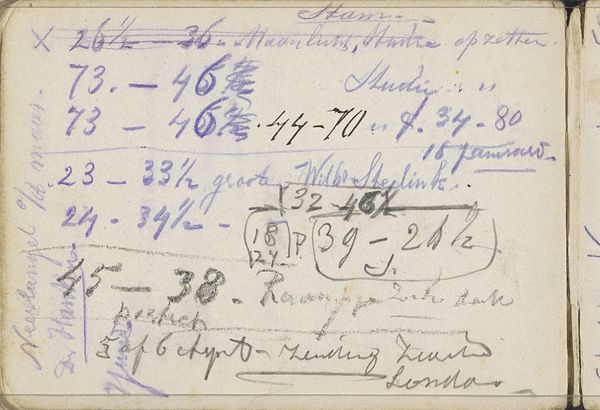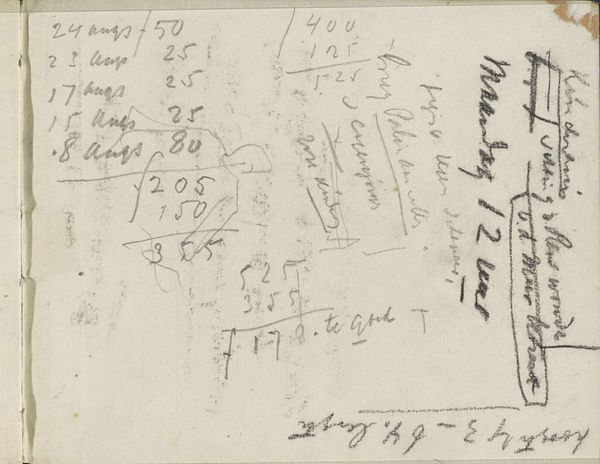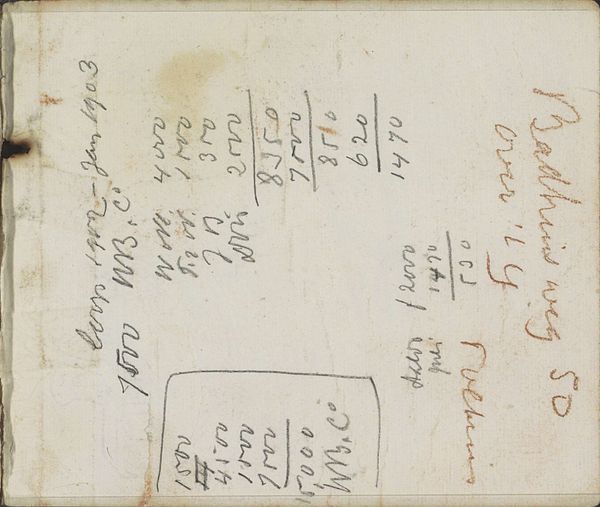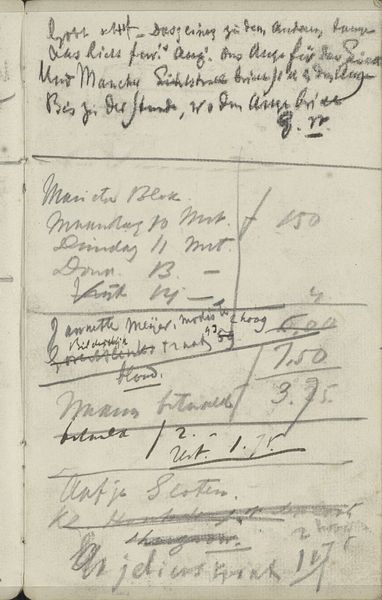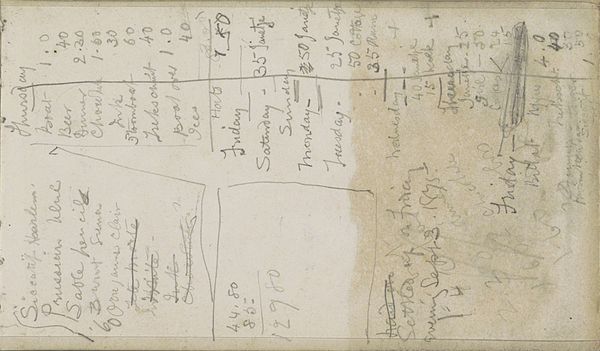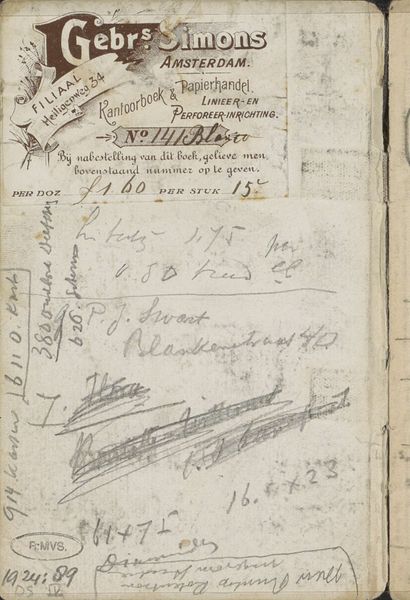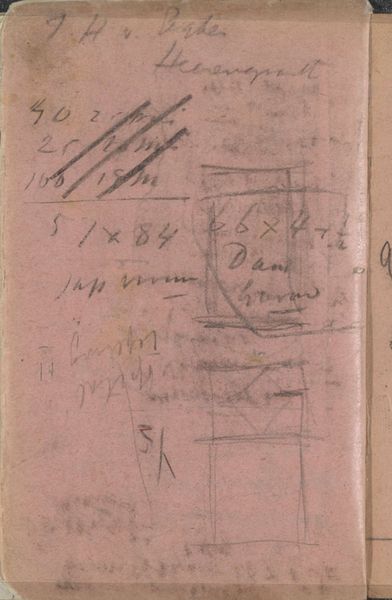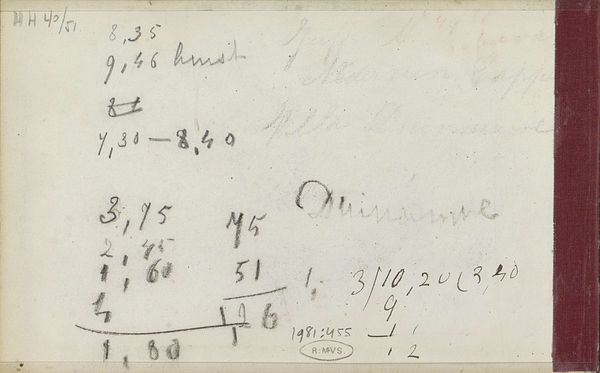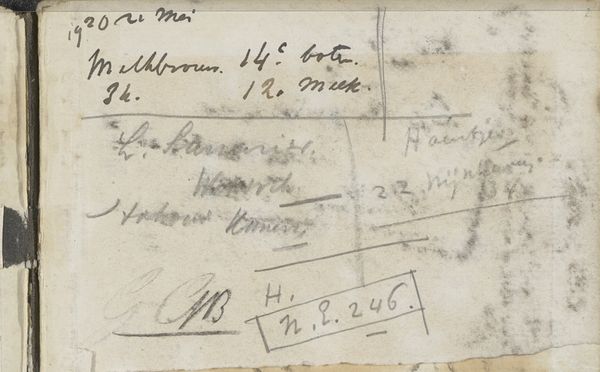
drawing, paper, ink, graphite
#
drawing
#
hand-lettering
#
hand drawn type
#
hand lettering
#
paper
#
personal sketchbook
#
ink
#
hand-drawn typeface
#
ink drawing experimentation
#
fading type
#
geometric
#
ink colored
#
graphite
#
sketchbook drawing
#
sketchbook art
Dimensions: height 8.2 cm, width 10 cm
Copyright: Rijks Museum: Open Domain
Curator: I find this drawing, titled "Rekening," simply fascinating as a raw exploration of form through everyday practicality. It’s presented here at the Rijksmuseum. Editor: The materiality catches the eye first – the paper’s aged quality, the casual application of ink and graphite. There's a spontaneous feel that almost suggests it was made surreptitiously, like doodling during a lecture. Curator: Exactly! Consider the structure of the piece: lines forming lists, calculations almost floating on the page. Notice how the artist uses line weight and varying pressures to create depth, differentiating items in the inventory versus mathematical markings. It’s rudimentary accounting elevated by raw expression. Editor: Right, but what kind of accounting are we looking at, and why preserve it as an artifact? Could this be a list made during the Dutch Golden Age when bookkeeping practices were still coalescing? What did this society value? Curator: One cannot disregard how the drawing medium serves to deconstruct these concerns through its emphasis on textural qualities. We see how strokes define areas in flux, and notice their interplay across what constitutes text. What constitutes the content on the sheet is destabilized because one can hardly read what the item means without some close familiarity. Editor: I wonder who the person was who compiled these expenses or kept track of these acquisitions? Were they prominent, wealthy patrons, or ordinary citizens who carefully allocated resources? Without context, the symbolic import suffers from opacity; its status diminishes if we strip away cultural narrative around objects. Curator: Well, such ambiguity offers another opening for analysis too though. As we are separated from an author we lack immediate interpretative strategies, making an audience free for unique decoding possibilities instead! Perhaps those seemingly random slashes act in fact like dynamic geometric features meant for a unique aesthetic intent, creating layers to engage vision with its complexity in its surface organization... Editor: But, the role is incomplete when you are isolated this work from social roots that are foundational concerning history, which risks us making inaccurate presumptions if done blindly here concerning context concerning authorship identity behind 'anonymous artwork’. Even the ‘CC' at the work here may suggest it references ‘Credit card', possibly reflecting transactions linked regarding colonial systems concerning extraction or trade if further researched thoroughly! Curator: Indeed, by exploring “Rekening” solely by exploring form’s potentials when removed then juxtaposed concerning cultural histories will deepen perception about expressive nuances. I am now beginning notice even richer semiotic play unfolding! Editor: Yes that is it precisely and if delving too by researching into specific social history context which once framed for whoever conceived Rekening' brings new layers meaning alive too now in dialogue now as viewing public as participants today!.
Comments
No comments
Be the first to comment and join the conversation on the ultimate creative platform.
